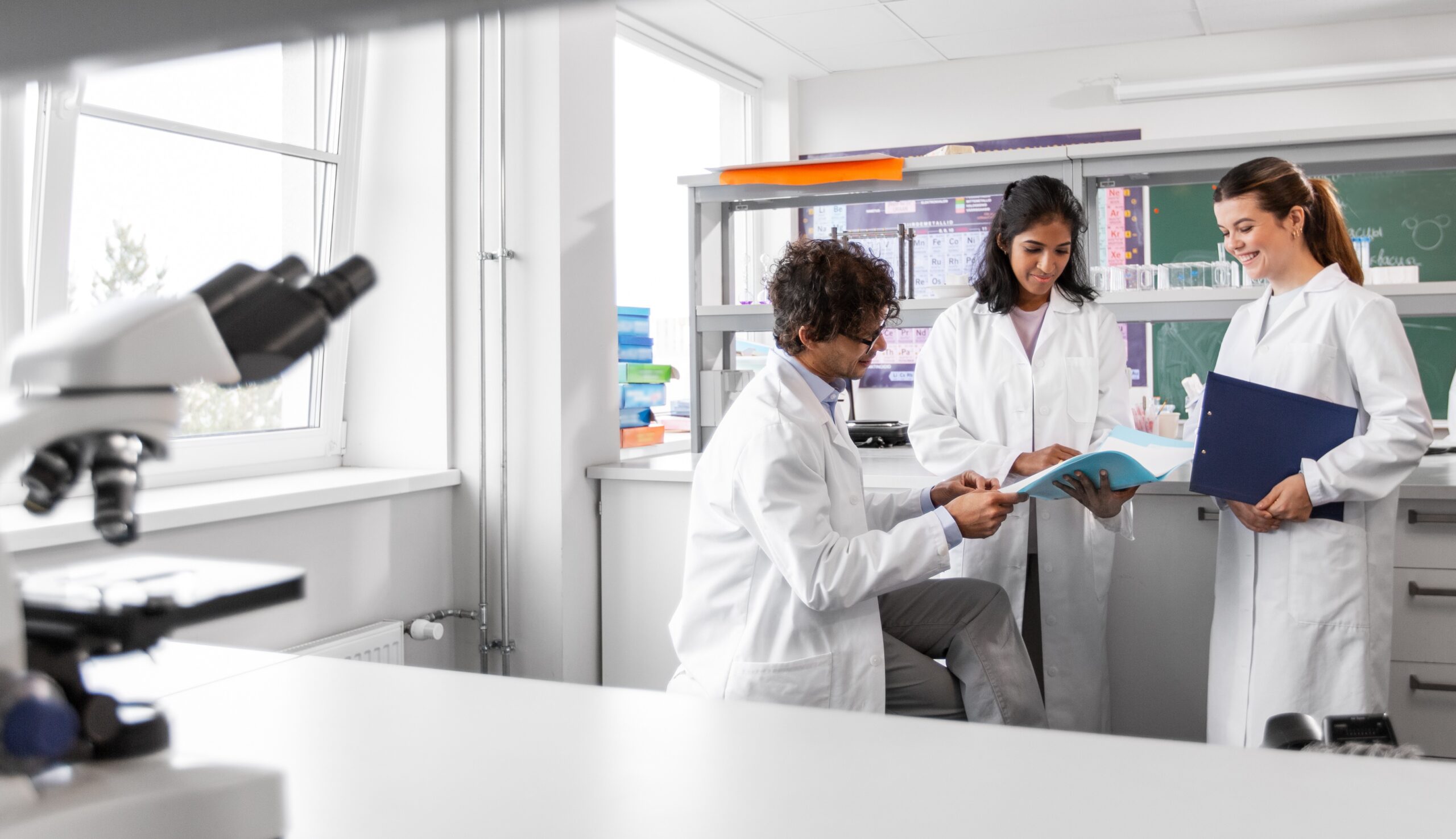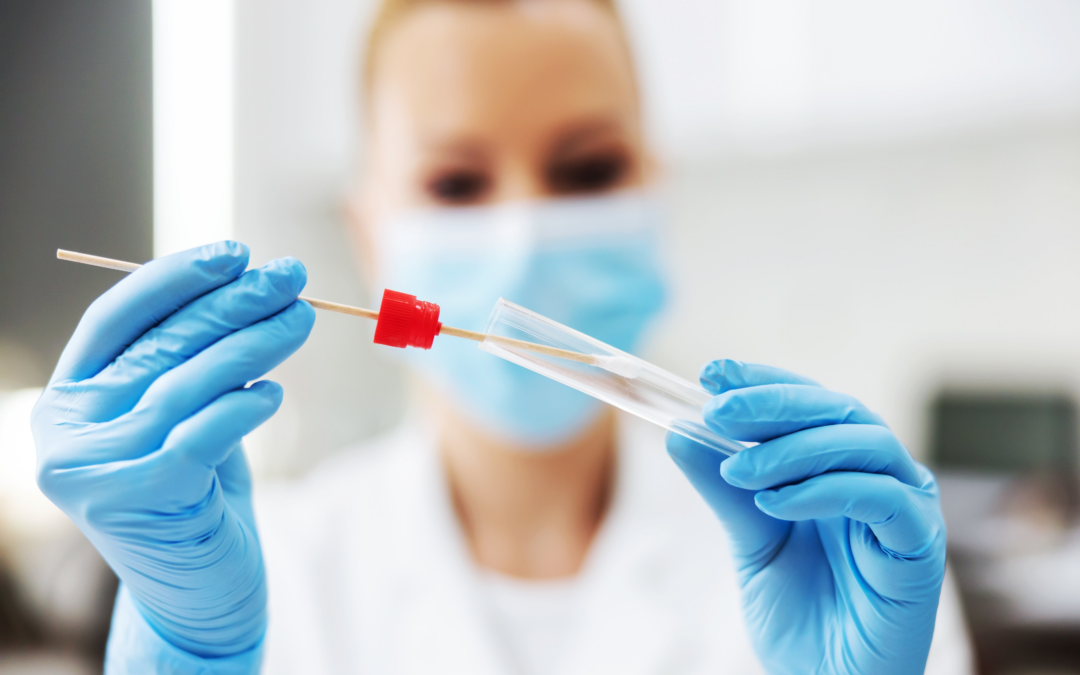
Launching a successful lab is a game-changer for Infectious Disease Specialists, enabling you to deliver rapid, precise diagnostics directly within your practice. With the latest advancements in molecular testing for infectious diseases, an in-house lab empowers you to quickly identify pathogens, monitor resistance patterns, and tailor treatments in real time. By taking control of your diagnostic process, you improve patient outcomes and open new revenue streams. But what does lab startup entail and is there a way to streamline the process? Yes, with Cadence Lab Services, there is a clear path to realizing your in lab. The first step is reading this guide.
How Operating a Molecular Testing Lab Makes Your Infectious Disease Clinic Stand Out
Molecular testing labs enable infectious Disease clinics to deliver rapid and reliable results, which supports prompt, targeted treatments. With PCR-based diagnostics, clinics can identify pathogens and biomarkers much faster than traditional methods. This efficiency raises patient satisfaction and trust.
Benefits at a Glance:
- Faster turnaround for results
- Precision in diagnosing infectious Disease infectious
- Enhanced ability to monitor antibiotic resistance
- Increased opportunities for revenue generation
- Direct oversight of stat and urgent tests
These advantages help position clinics as leaders in advanced, patient-focused care.
Advantages of Internal Laboratory Capabilities for Infectious Disease Clinics
Establishing an internal lab for Infectious Disease practices gives direct control over diagnostics and reporting. With faster turnaround for results, clinicians can address patient issues and adjust treatments more quickly.
Patients experience better quality of care. Practices can realize cost savings and gain financial benefits by capturing reimbursements and reducing reliance on third-party labs.
Key Benefits:
- Faster, more reliable test outcomes
- Increased efficiency in clinical workflows
- Enhanced patient trust and retention
- Improved revenue retention and reduced external costs
Phase 1: Professional Guidance for Starting an Infectious Disease Laboratory
Expert consulting is essential for infection disease clinics planning to establish an infectious Disease (infectious Disease) laboratory. This initial phase involves a structured approach to ensure that each clinic receives solutions suited to its specific patient base, workflow needs, and financial objectives. A consultant begins by reviewing the clinic’s current test utilization and patient throughput, then designs a step-by-step launch plan tailored to each facility.
A well-defined roadmap is developed, setting clear milestones for the entire process—from site preparation and equipment planning to licensing and laboratory go-live. This clarity allows clinics to proceed efficiently, minimizing disruptions to daily operations.
Selecting Optimal Diagnostic Panels for Infectious Disease Clinics
Choosing the most suitable tests for the clinic’s patient demographics is a foundational step. Advanced molecular testing, such as real-time PCR assays, allow for rapid detection of a wide spectrum of infectious Disease pathogens and key clinical markers. These multiplex panels enable simultaneous detection of bacteria, viruses, and parasites, as well as screening for antimicrobial resistance, all within a single workflow.
Key features of modern infectious Disease molecular panels:
- Detection of multiple pathogens and resistance markers in one sample
- Support for antimicrobial stewardship by identifying resistance genes promptly
- Fast turnaround times—often within the same day, aiding swift clinical decisions
Matching the lab’s test menu to the needs of infection disease patients helps expand service offerings and improves patient management.
Phase 2: Financial Planning for Your Infectious Disease Clinical Laboratory
Accurate financial planning is essential when launching an infectious Disease clinical laboratory in an infectious diseases clinic. Utilizing a test-specific financial review—based on actual sample volumes and billing data—can offer realistic expectations for operational costs and revenue.
A typical process includes a short real-world trial, followed by a thorough evaluation of projected expenses and reimbursement streams. This transparent approach empowers clinics to anticipate cash flow and assess the sustainability of the lab before investing.
Key financial steps:
- Gather current test volume and in network insurance history
- Project startup and ongoing costs
- Calculate expected reimbursements
- Assess return on investment using trial data
Phase 3: Establishing Your Infectious Disease Laboratory and Achieving Compliance
Clinics planning to start their own infectious Disease laboratory must address a range of regulatory requirements. Licensure and accreditation processes, such as CLIA, COLA, and CAP, are essential for legal operation and high-quality test performance. Compliance touches on several areas—facility standards, staff credentials, equipment calibration, and lab safety—all of which need ongoing attention.
Key Compliance Components
- Facility & Equipment: Ensure that lab spaces and equipment meet all health and safety guidelines.
- Personnel: Staff must possess required qualifications and complete regular training updates.
- Quality Measures: Strict quality control procedures and robust quality assurance programs are necessary.
- Recordkeeping: Accurate, timely documentation and proper reporting protocols safeguard both patients and the clinic.
Below is a quick reference table:
| Standard | Focus Areas | Accreditation Status |
| CLIA | Federal compliance, complexity assessment, inspection | Mandatory |
| COLA | Office labs, staff readiness, documentation | Optional |
| CAP | Pathology, high compliance, operational rigor | Optional |
In addition, adherence to OSHA, HIPAA, and local health regulations remains critical for safe and compliant operation.
Phase 4: Infectious Disease Laboratory Configuration, Equipment Setup, and Process Improvement
Space Utilization and Lab Design
Effective infectious Disease laboratory design begins with a clear assessment of available square footage and anticipated testing volume. A well-organized floor plan separates key zones—specimen collection, processing, storage, and administration—to promote safety, regulatory compliance, and smooth workflow. Clear pathways and signage further support operational efficiency.
Equipment Selection and Verification
Clinics should procure core equipment tailored to infectious Disease diagnostics, such as molecular testing platforms, centrifuges, refrigerators, biosafety cabinets, and specific analyzers. A table listing equipment type, recommended features, and calibration frequency can be helpful. Proper installation and scheduled calibration are crucial to meet quality standards.
Streamlined Process Development
Strong protocols address sample collection, accurate labeling, and meticulous processing. Integrating a Laboratory Information System (LIS) with the clinic’s EMR supports seamless data flow and simplifies reporting. Regular review cycles and external support help clinics keep lab processes efficient and up-to-date.
Phase 5: Building Your Infectious Disease Laboratory Team
Sourcing and Welcoming New Staff
Finding qualified personnel is essential for any infectious Disease clinical lab serving infectious disease clinics. Roles commonly needed include Laboratory Directors, Medical Technicians, and administrative team members. A structured onboarding process should verify all credentials and help new hires quickly understand laboratory operations and safety protocols.
| Role | Typical Responsibilities | Credential Needed |
| Lab Director | Oversight, compliance | MD/PhD, CLIA cert. |
| Medical Technician | Test analysis, quality control | ASCP/AMT/Licensed |
| Technician | Specimen prep, equipment maintenance | Certified/Trained |
| Support Staff | Administrative, supply management | Relevant experience |
Skill Development and Ongoing Verification
Initial and ongoing training is key for lab accuracy and safety. Personnel should receive instruction on molecular diagnostics, specimen management, and laboratory information systems. Regular competency checks—such as observed procedures or knowledge quizzes—help ensure all staff consistently meet high standards.
- Initial role-based training
- Annual or bi-annual competency assessments
- Continuous updates for new protocols
Readiness for Regulatory Review and Continued Assistance
Preparing for inspections by CLIA, CAP, or state agencies involves practice audits and documentation checks. Ongoing education keeps staff informed about regulatory changes and best practices. Support continues after launch with access to educational modules and audit preparation resources, helping clinics maintain compliance and adapt to evolving requirements.
Initial Actions for Launching a Laboratory
It is essential to determine your intended patient base and clinical area of focus, such as infectious disease diagnostics. Developing a comprehensive business plan, analyzing regulatory requirements, and forecasting your expected testing volume are vital early steps.
Mandatory Licenses and Certifications for Laboratory Businesses
Laboratories are required to secure a CLIA certification before performing diagnostic tests in the United States. Depending on state laws and the laboratory’s test offerings, labs may also need additional state-level licenses or voluntary accreditations from bodies such as COLA or CAP. The following table summarizes common requirements:
| Certification/License | Required For |
| CLIA | All clinical labs |
| State licenses | Varies by location |
| COLA/CAP | Optional, enhances credibility |
Expected Timeline for Establishing a Laboratory
Starting a new laboratory generally requires 3 to 4 months from planning to opening. This timeframe covers site setup, equipment acquisition, licensing, hiring, and regulatory approval. Variability is influenced by the complexity of test offerings and state or federal application processing times.
Key Obstacles in Building a Laboratory Business
Typical challenges include navigating complicated regulations, recruiting experienced laboratory professionals, and selecting suitable equipment. Meeting ongoing compliance standards and paperwork can also be difficult. The support of experienced consultants can help address these obstacles.
Outsourcing Laboratory Start-Up Tasks
Yes, many parts of the start-up phase can be outsourced, including compliance, facility design, equipment sourcing, and personnel training. Utilizing turnkey lab set-up providers can simplify the launch process and minimize costly errors.
Support for Infectious Disease Laboratory Start-Ups
Professional laboratory consulting firms offer expertise in regulatory compliance, physical layout, equipment procurement, and ongoing operational support. Their guidance is particularly valuable for infectious disease clinics entering the laboratory market for the first time.
Need more details? Explore our comprehensive guide to start your lab business with Cadence Lab Services.
Frequently Asked Questions
What are the first actions for launching a diagnostic laboratory?
Setting up a diagnostic lab involves identifying the specific testing services needed by the clinic’s patient population and securing a suitable facility. Obtaining necessary equipment, hiring qualified personnel, and developing clear protocols for sample handling are also key early steps. Documentation, including standard operating procedures and quality control methods, helps ensure reliable results and compliance.
Which financing methods can support the launch of a new laboratory?
Funding options include self-financing, bank loans, partnerships, and grants aimed at healthcare startups. Some clinics work with investors or consider leasing equipment to reduce upfront costs. Comparing various funding sources based on interest rates, repayment terms, and potential for partnership can help decide the best route.
| Funding Source | Pros | Cons |
| Bank Loans | Quick access, established | Interest rates |
| Grants | No repayment | Highly competitive |
| Investors | Large capital possible | Shared ownership |
| Equipment Leasing | Lower initial expenses | Ongoing payments |
Are there creative concepts for starting a laboratory business?
Infectious disease clinics can explore rapid molecular testing, telemedicine-linked diagnostics, or mobile sample collection services. Establishing partnerships with local health organizations to offer surveillance testing or integrating advanced data analytics for outbreak tracking are also innovative options.
- Rapid point-of-care testing for urgent needs
- Integration with electronic health records for streamlined results
- Home collection kits for remote patients
Find Out How Much Your Current Lab Work is Worth
Cadence Lab Services will help you calculate your current labwork for 2 months to show you the potential margins on bringing a lab-house. Our turnkey solutions take all the guess work out of your investment and empower you to provide the highest quality and fastest care to your patients.
Read Next

Dr. Kia Michel
Urologist and Lab Management Expert
Kia Michel MD is co-founder of Cadence Lab Services. A renowned urologist, he opened his own in-house lab when he realized that he could improve patient outcomes in his urology practice, Comprehensive Urology in Beverly Hills, by having the power of fast test results. He shares his knowledge of the lab industry to empower other clinicians to take control of their own lab work.

Antibiotic Stewardship Using PCR Testing
Antibiotic stewardship is a growing movement among the medical community as antibiotic resistant strains of bacteria are growing. The flow of new and novel antibiotics alone is not enough to keep up...
